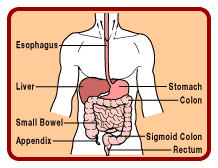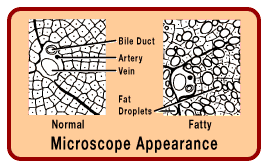
HEPATITONE - Natural Herbal Supplement
TRADITIONAL INDICATIONS

- Viral Hepatitis (Jaundice)
- Alcoholic Hepatitis
- Fatty Liver
- Early Cirrhosis of Liver
- Hepatomegaly
- Detoxification of Liver and Colon
- Anti-Diabetic
The Liver
The liver is the largest organ in the body. It is found high in the right upper abdomen, behind the ribs. It is a very complex organ and has many functions. They include:
- Storing energy in the form of sugar (glucose)
- Storing vitamins, iron, and other minerals
- Making proteins, including blood clotting factors, to keep the body healthy and help it grow
- Processing worn out red blood cells
- Making bile which is needed for food digestion
- Metabolizing or breaking down many medications and alcohol
- Killing germs that enter the body through the intestine

The liver shoulders a heavy workload for the body and almost never complains. It even has a remarkable power to regenerate itself. Still it should not be taken for granted. Certain conditions that develop, such as fatty liver and steatohepatitis, may be signs of liver injury that can lead to permanent liver damage.
Viral Hepatitis (Jaundice)
The term viral hepatitis is usually used to describe infections caused by agents whose primary tissue tropism is the liver. To date, at least five hepatitis viruses have been recognized, and these have been named:-Hepatitis A, B, C, D and E. Acute hepatitis may also occur as part of the clinical course of a number of viral infections, including human cytomegalovirus, Epstein-Barr virus, herpes simplex virus, yellow fever virus and rubella.
The majority of infections are totally asymptomatic, but common clinical features include: anorexia, nausea, vomiting, right upper quadrant pain and raised liver enzymes AST and ALT. Jaundice is the hall mark of infection, but tends to develop late.
Hepatitis virus A and E are infected through oral route (food and drinks) and B, C, D are through parenteral route - e.g. injections, blood transfusion, sexual, tattooing, acupuncture. Hepatitis B is the only DNA genome virus particle and all others are RNA only. Hepatitis B is dangerous as it can lead to cancer of liver (hepatocellular carcinoma). Epidemic or endemic type of jaundice is caused by either A or E. One hepatitis G has been reported from the blood of a surgeon but not widely reported.
In enteric types, the viral particles multiply in the intestines and later reach liver where it enters hepatocytes and produce inflammation causing liver to swell. Mild fever could be there initially with body pain. Later develops jaundice. In parenteral types, viral particles reach blood and produce viremia with symptoms. Further enters hepatocytes to produce jaundice and later it leads to severe liver damage and even liver failure and death. Carrier state is there who are prone to spread the infection through parenteral route. Various vaccines are developed now to prevent this dreadful disease. Serum vaccines and recombinant DNA technology (yeast) HBsAg vaccines.
Fatty Liver
Fatty liver is just what its name suggests: the build-up of fat in the liver cells. Although this is not a normal condition, fat in the liver usually causes no damage by itself. However, on some occasions it can be a sign that other more harmful conditions are progressing. Fatty liver may be associated with or may lead to inflammation of the liver.

Cause It would seem logical that eating fatty foods would cause a fatty liver, but this is not the case. The liver does play an important role in the metabolism or breakdown of fats. Something goes wrong in this process of metabolism, but it is still not known what causes fat to build-up in the liver. It is known that fat accumulates in the liver with a number of conditions. The most common is obesity. Fatty liver is also associated with diabetes mellitus, high blood triglycerides, and the heavy use of alcohol. It may occur with certain illnesses such as tuberculosis and malnutrition, intestinal bypass surgery for obesity, excess vitamin A in the body, or the use of certain drugs such as valproic acid and corticosteroids. Sometimes fatty liver occurs as a complication of pregnancy.
Symptoms and Diagnosis There are usually no symptoms that are noticeable to the patient. In fact, fatty liver is frequently uncovered during a routine physical examination. There may be a rise in certain liver enzymes found in the blood, and sometimes the liver is slightly enlarged. Fatty liver may also be discovered while the physician is evaluating a patient for other illnesses. For example, an ultrasound scan of the abdomen done for other reasons may show fat in the liver. To be certain of a diagnosis of fatty liver, the physician may recommend a liver biopsy. Under local anesthesia, a slender needle is inserted through the right lower chest. A small piece of liver tissue is taken out with the needle and examined under a microscope.
Cirrhosis of liver
When the scar tissue as a result of inflammation (hepatitis) in liver replaces normal and healthy tissue, blocking the flow of blood through this organ and preventing it from working as it should, is called Cirrhosis of liver. Cirrhosis is most commonly caused by alcoholism and hepatitis C, and was the 12th leading cause of death in the United States in 2000, killing about 26,000 people each year. Alcoholic Cirrhosis is the leading common type leading to fatal liver failure.
Causes Cirrhosis has many causes. In the United States, chronic alcoholism and hepatitis C are the most common ones.
Symptoms Many people with cirrhosis have no symptoms in the early stages of the disease. However, as scar tissue replaces healthy cells, liver function starts to fail and a person may experience the following symptoms: exhaustion, fatigue, loss of appetite, nausea, weakness, weight loss, abdominal pain, spider-like blood vessels (spider angiomas) that develop on the skin. As the disease progresses, complications may develop. In some people, these may be the first signs of the disease.
Complications of Cirrhosis Loss of liver function affects the body in many ways. Following are the common problems, or complications, caused by cirrhosis. Edema and ascites, Bruising and bleeding, Jaundice, Itching, Gallstones, Toxins in the blood or brain, Portal hypertension, Varices, Insulin resistance and type 2 diabetes, Liver cancer and Problems in other organs.

This Herbal supplement contains five herbs designed to help exclusively for liver diseases. Man has only one liver unlike pair of kidneys and lungs. Liver has the unique significance as the seat of metabolism and detoxification. All food, beverages and medications go to liver first after absorbed from stomach. A healthy liver function is mandatory behind a healthy wellness state.
For more details visit : http://gurusgarden.com



